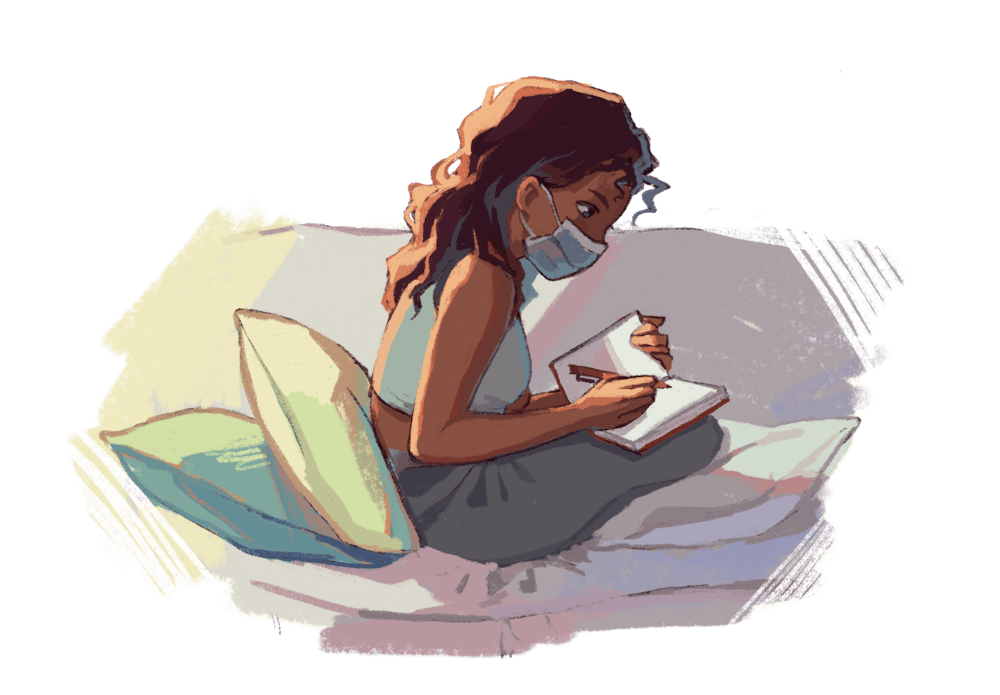Since May 2020, the Pandemic Journaling Project has been collecting journal entries, audio samples and photographs from participants across the globe about life during the COVID-19 pandemic. On Feb. 15, Katherine Mason and Sarah Willen, associate professors of anthropology at Brown and the University of Connecticut, respectively, made the project’s data available upon request for 25 years.
The data is now stored by the Qualitative Data Repository at Syracuse University for researchers approved by Mason, Willen and institutional review boards at the researchers’ universities.
Both Mason and Willen noted that Sebastian Karcher, associate director of the QDR and assistant professor of political science at Syracuse University, has been instrumental in managing the PJP’s archives.
Willen said she knew from the start that “the project … was designed for posterity” — a sentiment that aligned with Karcher and his team’s job at the QDR, where he said they “think of the long term all the time.”
“It became clear very, very quickly that (the) QDR would be an ideal partner in both ensuring accessibility to the material and ensuring that we would protect the confidentiality of our participants,” Willen added.
The issue of confidentiality was one of the key factors the PJP considered when deciding to share its data. “The one big piece is that if we wanted to make it immediately accessible to anyone we would have to go through and remove any potential identifiers,” Willen said, adding that neither the project’s funding nor time allowed for this.
The solution was to make data available to researchers upon request. This model will continue for 25 years. The data will only become publicly available in 2049, which Mason and Willen said will help ensure the confidentiality of participants in the years immediately following the pandemic.
Despite declining attention on COVID-19, the project continues to study the pandemic’s effects, adapting its methodology as the pandemic develops and changes. For example, at the beginning of the project, Mason and Willen invited participants to contribute weekly, but during the project’s second phase, in May 2022, they collected samples every three months.
Willen explained that she and her colleagues designed this project as a form of “archival activism.” She hoped the project “would make it possible to write equitable histories, and just histories in which people wouldn’t be left out just because they don’t have strong voices in society or in the political sphere.”
A principal goal of this project is to better understand the role of community-based organizations during the pandemic and support these organizations’ future operations, according to Mason and Willen. To that end, the two have recently taken on subprojects under the PJP that spotlight specific communities, such as first-generation college students. Willen said students are invited to “reflect periodically on how the pandemic has affected them and continues to affect them.”
They also focused on immigrant communities in New York City, specifically South Asian and Latinx women.
Although Mason does not have specific hopes for future projects involving the project’s data, she wants their findings to be used to understand the experiences of ordinary people in an anomalous time. Willen similarly hopes that “people who have no personal memory of the pandemic will be able to connect with these materials.”
Karcher even suggested that the PJP could change the course of qualitative research for the future, saying it “is a really cool model for ambitious large, team-based qualitative research.”
Mason, Willen and Karcher all expressed their gratitude for working on the project, which will continue contributing to post-pandemic society through exhibitions.
“As anthropologists, we’ve created something that has helped people in a really disruptive, frightening, painful time,” Willen said. “It’s not something anthropologists often get to do.”
Correction: A previous version of this misstated the titles of Katherine Mason and Sarah Willen, who are associate professors of anthropology. The Herald regrets this error.





